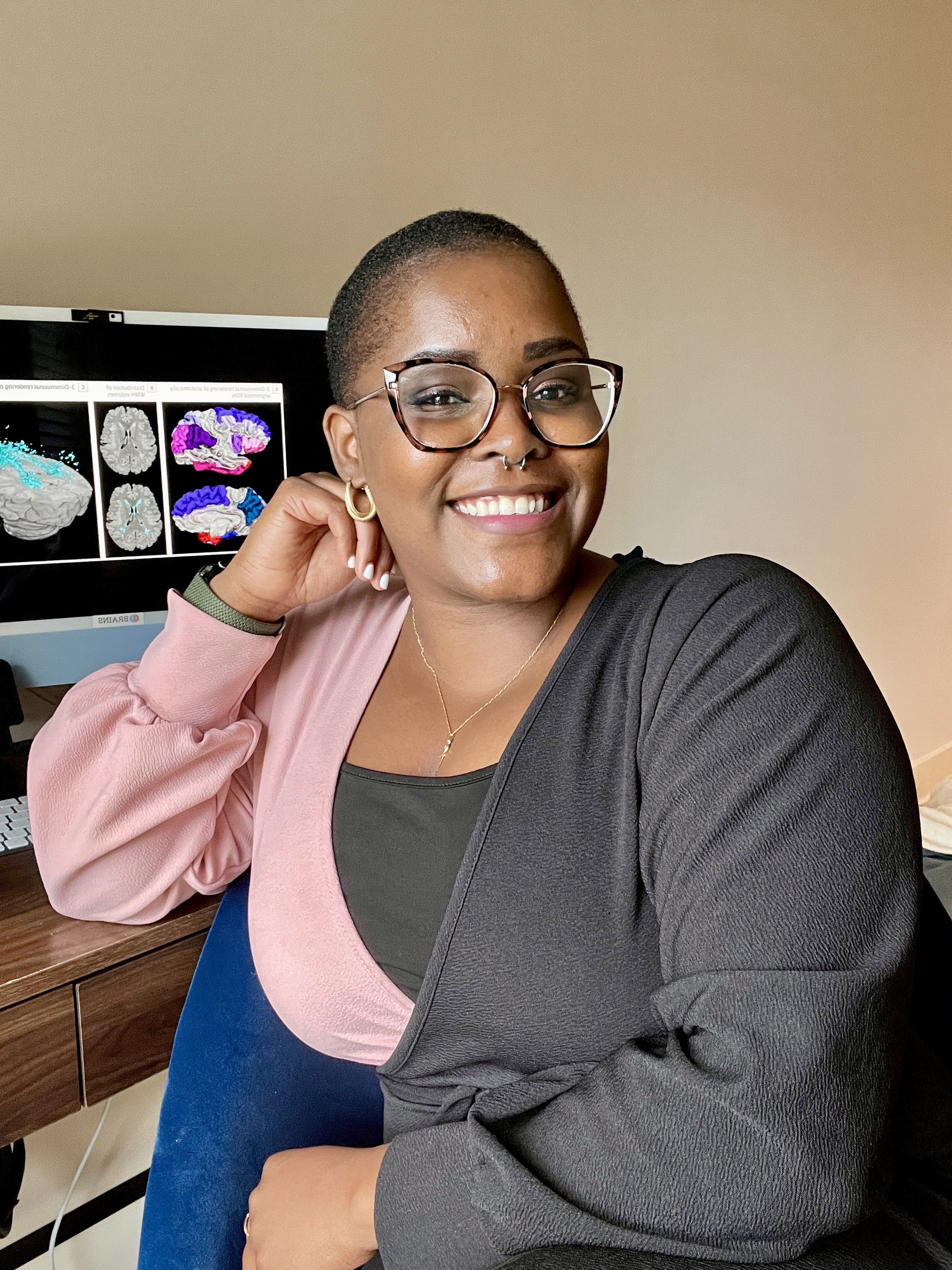Indira C. Turney, Ph.D.
Early Career Collaborators
Dr. Indira C. Turney is a cognitive neuroscientist whose research significantly advances our understanding of brain aging in diverse populations. As the director of the Brain Health Equity (BHE) Unit at the NIH's National Institute on Aging (NIA), she investigates how environmental, sociocultural, and biological factors shape brain health, with an emphasis on diverse Black adults across the lifespan. Using advanced neuroimaging techniques like MRI, combined with comprehensive epidemiologic and genomic analyses, she explores how stress, social disadvantage, and structural factors contribute to disparities in brain aging and Alzheimer's disease and related dementias. Her research aims to identify critical periods of vulnerability and resilience to inform targeted interventions that improve brain health outcomes for Black adults and other at-risk populations.
Dr. Turney's academic journey began with a degree in Psychology from the University of the Virgin Islands, followed by a Ph.D. in Cognitive Neuroscience from Pennsylvania State University. She completed her postdoctoral training at Columbia University Irving Medical Center, where she focused on socio-cultural mechanisms affecting the aging brain in racially and ethnically diverse middle-aged and older adults. Her work has earned her significant recognition, including funding from an NIH Diversity Supplement, the NIH AD-RCMAR CIRAD Pilot Grant, and the NIH/NIA K99/R00 Pathways to Independence Award. She has also been honored as an NIH Butler-Williams Scholar and a BRAINS (Broadening the Representation of Academic Investigators in NeuroScience) fellow. In 2024, Dr. Turney joined the NIA's Laboratory of Epidemiology and Population Sciences, Health Disparities Research Section, as an Earl Stadtman Tenure-Track Investigator and an NIH Distinguished Scholar. She continues to focus on advancing brain health equity and addressing health disparities through her research.
Connect with Dr. Turney on Twitter & Instagram. Follow Indira’s publications and other works on Google Scholar, LinkedIn, and BlackInNeuro.


